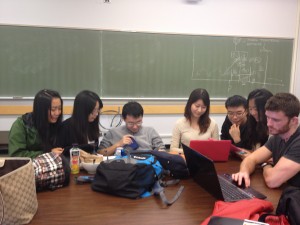This will be our final blog post! Can’t believe we made 9 post like this for keeping track of our group project. This is the first time we made a progress blog like this one, and it has definitely been a educational experience for us. We realized that keeping a blog going is a lot of work, and it can be frustrating at times to keep up with the course required contents. For some weeks, our group had lots to write about, but for other we were simply waiting on community partner’s reply to proceed with our project. Because our project is more of a research based project, we lacked media contents of ourselves for our blog. We tried to make use of past Special Olympic games images to fill this gap. A suggestion for future LFS students: Try to keep track of your project with images to have more media content for the blog (ex. take image at every meeting/event). This was something we definitely could have done for our blog. The quality of our blog reflect our lack of experience, we hope that future LFS 350 students can use our blog as a template to build their blogs to be much better!
For the final week of LFS 350, our group did our group project presentation in front of our community partner and class peers. Our group prepared all week for our group project presentation. Everyone had a maximum of 2-3minutes to speak to keep our presentation under the time limit. Workload for this presentation was evenly divided. Personally, I felt good about the presentation, everyone did their part, and our practice for the presentation kept us under the time limit. During the question period of our presentation, Seb answered most of the questions. I heard from other members after the presentation that they wanted to help answer the questions as well, but they lacked confidence in front of the class. Overall, our presentation went very well, some concerns was brought up during the question period on our project result. We will take their advices into consideration for our final report.
Thank you for reading our final blog! For future LFS 350 students reading this blog, we hope for the best of luck with your project! Cheers!

